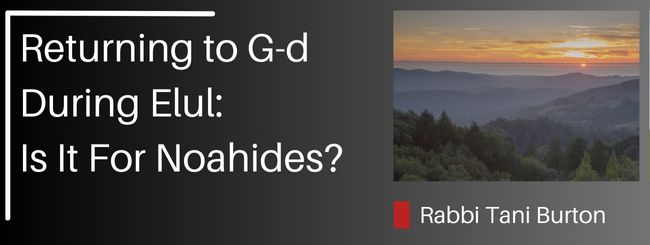בס”ד
בס”ד
The lecture discusses the significance of the Hebrew month of Elul, a time of spiritual preparation for Rosh Hashanah and the Days of Awe (Yamim Noraim), which are seen as days of judgment. Elul offers a unique opportunity for introspection and Teshuvah (repentance), during which one can restore and deepen relationships with both G-d and fellow humans. This month is marked by a sense of heightened closeness to G-d and is relevant not just for Jews, but also for Noahides, since Rosh Hashanah is a universal day of judgment for all humanity, as noted in the Mishna in Rosh Hashanah.
The mystical text Sefer Yetzirah (chapter 5) links Elul with the hebrew letter Yud, the constellation of Virgo, and the left kidney. The Yud represents effort and introspection, while Virgo symbolizes purity, aligning with the themes of renewal and repentance. The kidneys, spiritually associated with guidance and moral direction, emphasize the need for self-reflection and moral refinement.
Repentance in Jewish tradition transcends the natural order. While everything in the world decays, as explained by the second law of thermodynamics, Teshuvah allows a person and the world to be restored to a state before sin, reminiscent of the world before Adam and Eve’s transgression in the Torah.
Noahides can also use Elul to prepare for Rosh Hashanah by reflecting on how they have upheld the Seven Noahide Laws. These universal principles of justice, ethics, and morality align with the spiritual themes of the season. Rosh Hashanah is not merely the Jewish New Year; it is a day when G-d judges all people, as mentioned in the Talmud Rosh Hashanah 16a and Psalm 33:1-15.
Elul is often associated with the verse from Song of Songs 6:3: “I am my beloved’s, and my beloved is mine”—a metaphor for the reciprocal love between G-d and the individual. The first letters of each Hebrew word in this phrase spell Elul, highlighting the closeness to G-d during this month. Isaiah 55:6 also urges people to seek G-d while He is near, a metaphor for the heightened spiritual accessibility of G-d during times like Elul.
Psalm 27, traditionally recited throughout Elul, underscores G-d’s protection and proximity: “The L-rd is my light and my salvation; whom shall I fear?” This reinforces the idea that during Elul, people can draw closer to G-d without fear. Deuteronomy 30:6 points to G-d’s active role in helping individuals overcome spiritual obstacles when they turn to Him for repentance. Teshuvah is not passive; it requires personal responsibility, as emphasized in Leviticus 18:5, which states that living by G-d’s commandments leads to spiritual vitality.
Even for unintentional sins, as seen in Exodus 21:2 regarding someone who commits manslaughter, G-d provides a path for repentance and refuge. Elul is a time when G-d invites people to take advantage of these divine opportunities and return to Him.
In conclusion, Elul is a period of immense spiritual potential. G-d is especially near and ready to accept repentance, as seen in Deuteronomy 30:6 and Exodus 34:6-7, but the responsibility lies with the individual to take action. Noahides can use this time to prepare for Rosh Hashanah through introspection, repentance, and mending relationships, focusing on spiritual renewal and growth.
By Rabbi Tani Burton
More shiurim of Rabbi Tani Burton
See also the blog: Personal Development Plan
© Copyright, all rights reserved. If you enjoyed this article, we encourage you to distribute it further.
Our blogs may contain text/quotes/references/links that include copyright material of Mechon-Mamre.org, Aish.com, Sefaria.org, Chabad.org, and/or AskNoah.org, which we use in accordance with their policies.
